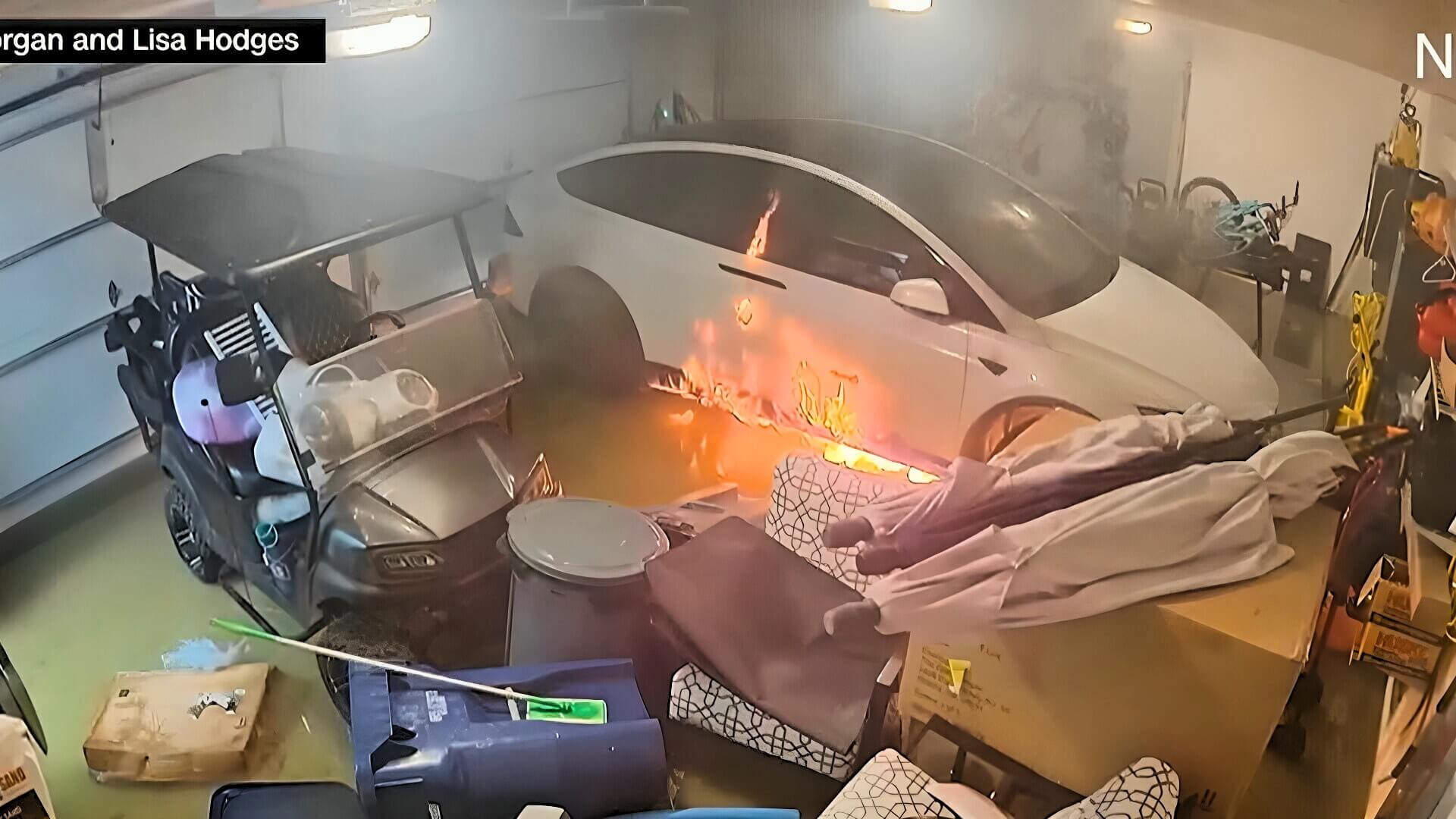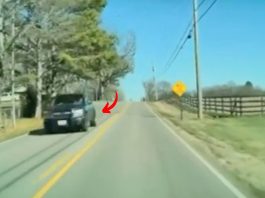A Florida family’s home was destroyed after their Tesla caught fire while submerged in floodwaters during Hurricane Helene. Local station first reported about the fire that it started in the garage and spread rather quickly.
It didn’t take much time for the fire to put the house in ruins within minutes. Fortunately, all nine people inside the home managed to escape unharmed before the fire consumed the building.
Here’s what happened.

Tesla Model X Catches Fire
While it’s uncommon, EVs can catch fire if their batteries are exposed to saltwater, which is highly corrosive. In this case, floodwaters caused a short circuit in the Tesla’s battery, leading to the fire.
A firefighter explained that the family’s Tesla Model X Plaid was parked in the garage during last Friday’s storm in Sarasota. As floodwaters reached about 20 cm in the garage, the family attempted to raise the car, which wasn’t plugged in at the time.
Despite their efforts, the Tesla suddenly burst into flames, a moment they later captured on video and shared publicly. One Reddit user commented on the footage mockingly saying to get a powerwall installed in the garage as well to desalinate the water and avoid fire.
Comment
byu/Nakatomi2010 from discussion
inTeslaLounge
Why EVs Can Catch Fire In Floods?
Electric vehicles are generally very safe, even when exposed to water, but saltwater poses a unique risk. Saltwater can corrode the seals that protect the battery, allowing water to seep in and cause a short circuit. This can lead to a “thermal runaway,” where the cells in the battery overheat and catch fire.
Tesla and other EV makers have warned owners not to drive their cars after they’ve been submerged in water until they’ve been inspected. The safest approach is to park the vehicle far away from buildings—Tesla recommends a distance of at least 50 feet.
Ahead of Hurricane Helene, Florida Governor Ron DeSantis urged EV owners to move their cars to higher ground to avoid this kind of issue. Even though most EVs have safety features to handle extreme conditions, saltwater can still breach in.
How Common Are EV Fires After Flooding?
After Hurricane Ian, which flooded thousands of vehicles, only a small percentage of submerged EVs caught fire. Research from the National Highway Traffic Safety Administration (NHTSA) found that of 3,000-5,000 EVs flooded during the hurricane. About 600 were declared total losses, and only 36 caught fire—roughly 6% of the total-loss EVs.
The fire risk comes from saltwater creating a conductive path between the battery’s internal components, which can cause it to short-circuit and overheat. This can happen even after the floodwaters have receded, so just because a car seems dry doesn’t mean it’s safe.
EVs Safety In Flood Zones
With Hurricane Helene wreaking havoc in the Southeast, authorities are reminding EV owners to be cautious if their vehicles are in floodwaters. If your vehicle is exposed to flood, don’t attempt to drive it. It’s better to get it inspected by a professional to make sure it’s safe before taking the wheel.
If you live in an area prone to flooding, the best thing you can do is move your EV to higher ground before a storm hits. Even though fires in submerged EVs are said to be rare, it’s still a good idea to take precautions.
Bottomline
EV fires are not a common issue and thus often come with heavy backlash. As electric vehicles become more popular, we’re learning more about how they react in extreme weather, like floods.
EVs still have fewer fire risks overall compared to traditional gasoline-powered cars, but can happen. A 12v battery in an ICE vehicle is a fire risk as well when exposed to salt water.
Features like Vehicle-to-Home (V2H) or Vehicle-to-Load (V2L), can power your home during outages which is incredibly useful in storms. However, in areas prone to flooding, this could also be a fire hazard.



